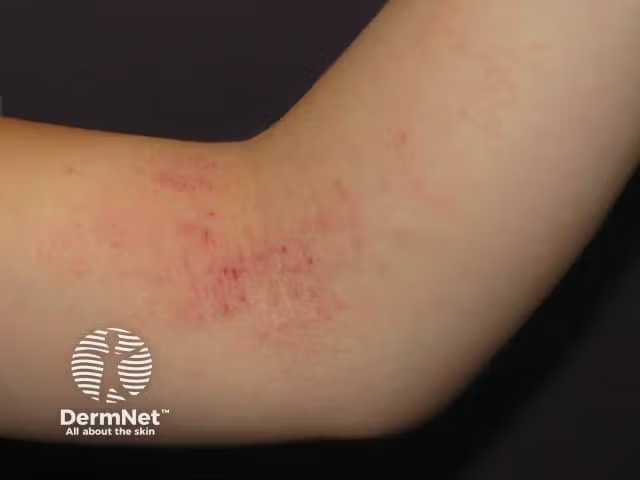- Case-Based Roundtable
- General Dermatology
- Eczema
- Chronic Hand Eczema
- Alopecia
- Aesthetics
- Vitiligo
- COVID-19
- Actinic Keratosis
- Precision Medicine and Biologics
- Rare Disease
- Wound Care
- Rosacea
- Psoriasis
- Psoriatic Arthritis
- Atopic Dermatitis
- Melasma
- NP and PA
- Skin Cancer
- Hidradenitis Suppurativa
- Drug Watch
- Pigmentary Disorders
- Acne
- Pediatric Dermatology
- Practice Management
- Prurigo Nodularis
- Buy-and-Bill
Opinion
Video
Treatment Response to Topical Therapy for Atopic Dermatitis
Author(s):
Trinity Flint reviews the topical treatments she was prescribed in the early stages of atopic dermatitis and her response to treatment.
Diego Ruiz Dasilva, MD, FAAD: I want you to talk a bit more about steroid creams. When you used them, you said it would help briefly. Tell me more about how you felt when it initially helped, and how you felt when it stopped helping.
Trinity Flint: Whenever the steroid creams would initially help, I would typically be pretty happy with the results. And some of them didn’t do anything, some of them didn’t help at all. I think my biggest issue with the steroid cream though was the way my lifestyle is and the process of application, and how often I would have to apply it for it to work for me. It was just a very strenuous process for me, especially as a kid.
Diego Ruiz Dasilva, MD, FAAD: It’s hard to basically uproot your life and be forced to do all these things, especially as a kid, and then even as a teenager when life’s already stressful enough, having to do all those things.
Trinity Flint: Then whenever it would stop working, after a while I got used to it. But it was always a really disappointing feeling because, of course, my hopes would get a little high.
Diego Ruiz Dasilva, MD, FAAD: Tell me more about any adverse effects you had to therapies. You mentioned a bit about the cortizone cream that you tried and how it caused burning and things worsening. Have you had that kind of adverse effect with other steroid creams you were prescribed?
Trinity Flint: Yes, it has happened a couple of times with other ointments and steroid creams that I have tried. The burning would happen sometimes, so I would immediately stop using that. Then I also have some sensory issues when it comes to the greasy feeling that a lot of ointments leave on your skin, I don’t typically enjoy that. So, that was very annoying, as someone who doesn’t prefer that feeling.
Diego Ruiz Dasilva, MD, FAAD: It’s nice to hear about your experience and depending on what kind of effects on the body you may or may not know. Burning stinging, that type of thing you would know. And you also hit the nail on the head when it comes to how something feels when you apply it to your skin, for skin-directed therapies. That plays a huge role in whether you’re going to use a treatment and whether the treatment is going to work. You could have the best topical cream in the whole world, but if it doesn’t feel good going on your skin, you’re not going to use it, and you’re going to be struggling with your skin disease for a long time.
If you had to guess, how many different topical medicines or prescription medicines in general did you try before we settled on a treatment that worked well?
Trinity Flint: Probably over 5.
Diego Ruiz Dasilva, MD, FAAD: It’s pretty cumbersome, although standard unfortunately, in the atopic dermatitis space to have tried so many things before you find something that works well.
Transcript edited for clarity






